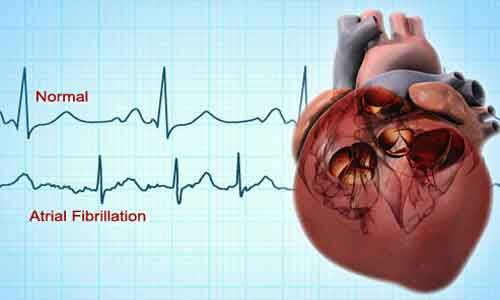- Home
- Medical news & Guidelines
- Anesthesiology
- Cardiology and CTVS
- Critical Care
- Dentistry
- Dermatology
- Diabetes and Endocrinology
- ENT
- Gastroenterology
- Medicine
- Nephrology
- Neurology
- Obstretics-Gynaecology
- Oncology
- Ophthalmology
- Orthopaedics
- Pediatrics-Neonatology
- Psychiatry
- Pulmonology
- Radiology
- Surgery
- Urology
- Laboratory Medicine
- Diet
- Nursing
- Paramedical
- Physiotherapy
- Health news
- Fact Check
- Bone Health Fact Check
- Brain Health Fact Check
- Cancer Related Fact Check
- Child Care Fact Check
- Dental and oral health fact check
- Diabetes and metabolic health fact check
- Diet and Nutrition Fact Check
- Eye and ENT Care Fact Check
- Fitness fact check
- Gut health fact check
- Heart health fact check
- Kidney health fact check
- Medical education fact check
- Men's health fact check
- Respiratory fact check
- Skin and hair care fact check
- Vaccine and Immunization fact check
- Women's health fact check
- AYUSH
- State News
- Andaman and Nicobar Islands
- Andhra Pradesh
- Arunachal Pradesh
- Assam
- Bihar
- Chandigarh
- Chattisgarh
- Dadra and Nagar Haveli
- Daman and Diu
- Delhi
- Goa
- Gujarat
- Haryana
- Himachal Pradesh
- Jammu & Kashmir
- Jharkhand
- Karnataka
- Kerala
- Ladakh
- Lakshadweep
- Madhya Pradesh
- Maharashtra
- Manipur
- Meghalaya
- Mizoram
- Nagaland
- Odisha
- Puducherry
- Punjab
- Rajasthan
- Sikkim
- Tamil Nadu
- Telangana
- Tripura
- Uttar Pradesh
- Uttrakhand
- West Bengal
- Medical Education
- Industry
Coexistence of carotid stenosis and AF linked to higher stroke risk

Adelaide, Australia: About 1 in 10 atrial fibrillation (AF) patients experience carotid stenosis (CS) and vice versa, reveals a recent study. Also, about half of the AF patients have non-stenotic carotid disease. The findings, published in the American Journal of Cardiology, have important implications for AF screening in CS patients, opportunities to intervene on common risk factors, and stroke prevention.
The coexistence of carotid stenosis and atrial fibrillation has been reported to be associated with a higher stroke risk rather than the existence of either condition alone. In the study, Jean Jacques Noubiap, Centre for Heart Rhythm Disorders, University of Adelaide, Adelaide, Australia, and colleagues aimed to summarize the data on the association of CS and AF.
The researchers searched the online databases to identify published studies that provided relevant data through 27 February 2020. In total, forty-eight studies were included, 28 reporting on the prevalence of AF in a total of 2,288,265 patients with carotid disease, and 20 on the prevalence of the carotid disease in a pooled population of 49,070 AF patients.
Key findings of the study include:
- The pooled prevalence of CS in AF patients was 12.4% (n = 3919), ranging from 4.4% to 24.3%.
- The pooled prevalence of carotid plaque was 48.4% (n = 4292).
- The prevalence of AF in patients with CS was 9.3% (n = 2,286,518), ranging from 3.6% to 10.0%.
- This prevalence was much higher in patients undergoing carotid artery stenting (12.7%) compared to those undergoing carotid endarterectomy (6.9%).
- There was no difference in AF prevalence between patients with CS, with and without previous cerebrovascular event.
"Findings revealed a frequent co-existence of AF and CS. These findings have important implications for AF screening in patients with CS, stroke prevention and the opportunities to intervene on common risk factors," concluded the authors.
The study, "Meta-Analysis Comparing the Frequency of Carotid Artery Stenosis in Patients with Atrial Fibrillation and Vice Versa," is published in the American Journal of Cardiology
DOI: https://www.ajconline.org/article/S0002-9149(20)31089-4/fulltext
Dr Kamal Kant Kohli-MBBS, DTCD- a chest specialist with more than 30 years of practice and a flair for writing clinical articles, Dr Kamal Kant Kohli joined Medical Dialogues as a Chief Editor of Medical News. Besides writing articles, as an editor, he proofreads and verifies all the medical content published on Medical Dialogues including those coming from journals, studies,medical conferences,guidelines etc. Email: drkohli@medicaldialogues.in. Contact no. 011-43720751


